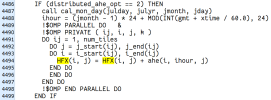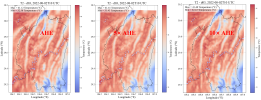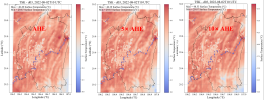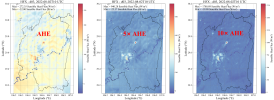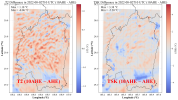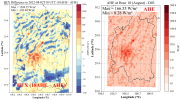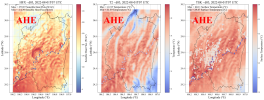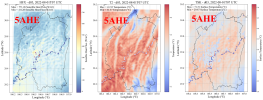Dear WRF Developers and Users,
I'm currently working with WRF versions 4.6 and 4.7 and exploring the newly added features related to urban modeling, specifically the Anthropogenic Heat Emission (AHE) and SLUCM-related urban parameters.
According to the release notes and the README.namelist file, the distributed_ahe_opt namelist parameter provides three options:

However, when inspecting the source code, I only found logic related to distributed_ahe_opt = 1 inside phys/module_pbl_driver.F (around line 2268). GitHub codes can be found in WRF/phys /module_pbl_driver.F.

I could not locate any implementation or conditional logic for distributed_ahe_opt = 2. My questions are:
1、Is the implementation for distributed_ahe_opt = 2 located in another module or file?
2、Or is this option not yet fully implemented despite being documented in the namelist?
3、If available, could you point me to the relevant code sections or usage examples for options 1 vs. 2?
Any clarification or guidance would be greatly appreciated. Thank you for your efforts in continuously improving the WRF system.
I'm currently working with WRF versions 4.6 and 4.7 and exploring the newly added features related to urban modeling, specifically the Anthropogenic Heat Emission (AHE) and SLUCM-related urban parameters.
According to the release notes and the README.namelist file, the distributed_ahe_opt namelist parameter provides three options:

However, when inspecting the source code, I only found logic related to distributed_ahe_opt = 1 inside phys/module_pbl_driver.F (around line 2268). GitHub codes can be found in WRF/phys /module_pbl_driver.F.

I could not locate any implementation or conditional logic for distributed_ahe_opt = 2. My questions are:
1、Is the implementation for distributed_ahe_opt = 2 located in another module or file?
2、Or is this option not yet fully implemented despite being documented in the namelist?
3、If available, could you point me to the relevant code sections or usage examples for options 1 vs. 2?
Any clarification or guidance would be greatly appreciated. Thank you for your efforts in continuously improving the WRF system.

